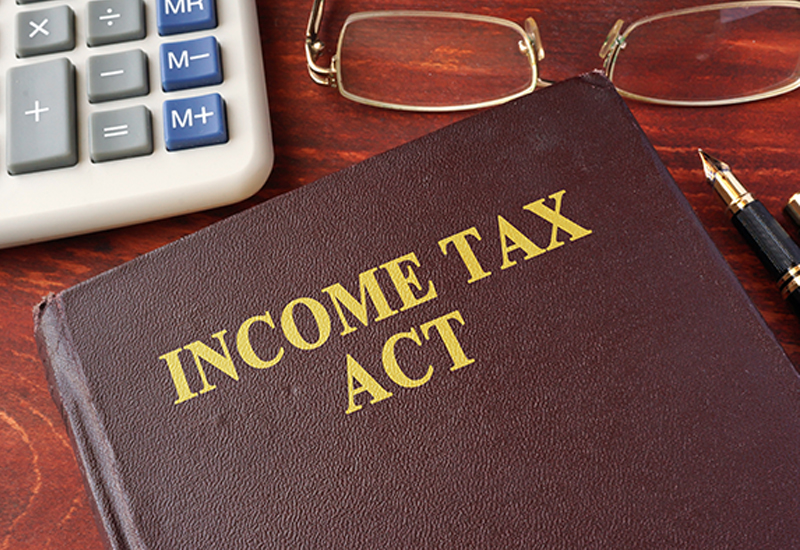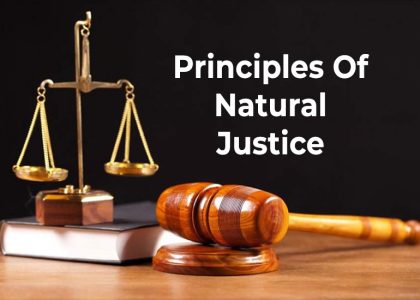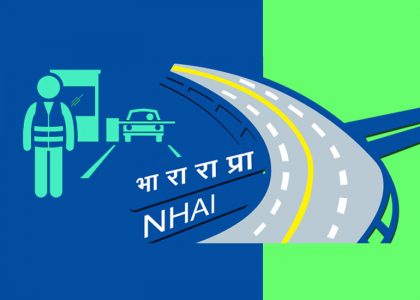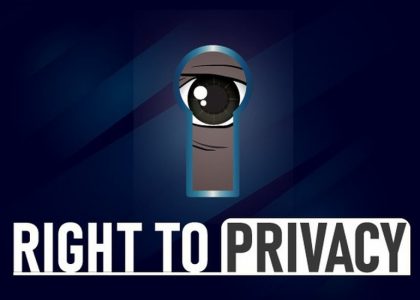INTRODUCTION
The Income Tax Act Provides For Two Canines Of Dracula In The Hands Of The Department In The Name Of Search And Survey. Both Are Necessary Evils. A Surprise Check On The Affairs Of A Taxpayer Is A Legitimate Weapon Of The State To Detect And To Prevent Tax Evasion. Search Is Done In Order To Unearth Hidden Cash Or Transaction Which Was Camouflaged By The Assessee In Order To Escape The Liability And Burden Of Income Tax. Whereas, The Survey Proceeding Is Also Akin To Search Proceeding. Search, Unlike Survey Proceedings It Is Not Just To Get Information Of Undisclosed Income, But Also To Seize The Money, Bullion Etc. Representing The Undisclosed Income And To Retain Them For The Purpose Of Proper Realization Of Taxes, Penalties Etc. Compared To Search Proceedings Survey Proceedings Have A Limited Objective Of Getting Information Relevant To The Assessable Income Of A Person.
SEARCH UNDER INCOME TAX ACT
The Power Of Search Is A Draconian Power In The Hands Of The Department If Utilized Without Restrictions And Checks. The Department Was Not Vested With The Right And Power To Make Search And Seizure. However, They Had Powers To Discovery And Inspection, Enforcing Attendance Of Witnesses, Examination Of Witnesses On Oath, Compelling Production Of Books Of Account And Documents, Issuing Of Commissions Etc., Under Civil Law.
On Recommendation Of The Taxation Enquiry Commission, 1956, Sec. 37 Was Formulated And Entered In The 1922 Act To Confer Powers Of Search On Income Tax Officers. The Permission For The Same Was To Be Granted And Authorized By Commissioners In That Behalf. However, These Powers Were Limited To Search And Seizure Of Books Of Account And Other Documents Which Were In The Opinion Of The Officer Useful For Framing Proper Assessments Under The Income-Tax Act, 1922.
The Extent Of Powers:
The Income Tax Act Gives Very Wide Powers To An Authorized Officer To Carry Out The Search And Also To Seize Documents And Unaccounted Assets.
The Authorized Officer Has The Power To:
- a) To enter and search any building, place, etc. where he has reason to suspect that books of accounts, other documents, money, bullion, jewellery or other valuable article or thing
Representing Undisclosed Income Is Kept;
- b) To break open the locks, where the keys thereof are not available’
- c) To carry out personal search of the person who is suspected
- d) Seize the items as mentioned in a) above;
- e) Placemarks of identification and take extracts or copies of the books of accounts and other documents; and
- f) Make a note or inventory of the valuables found during the search.
SURVEY UNDER THE INCOME TAX ACT
Survey Is Defined Under Sec 133A Of The Income Tax Act. It Consists Of Seven Sub-Sections And Powers Under Sec 133A Can Be Divided Into Two Broad Categories. The First Category Deals With The Provisions Relating To Carrying Out A Survey At Business Premises Of Any Person Including Premises Where Activity For Charitable Purpose Is Carried On And Second Category, Deals With Inquiry Regarding Expense Incurred On Any Function Or Event.
The Extent Of Enquiry That Can Be Carried Out
In Exercise Of Powers Under Section 133A, The Income -Tax Authority Can Enter Into Specified Class Of Premises And May: –
a) Inspect books of account and other documents.
b) Place marks of identification on the books of account or other documents and make extracts or copies there from.
c) Impound books or documents inspected.
d) Check or verify cash, stock or other valuable articles or thing.
e) Take inventory of cash, stock or other valuable articles or thing.
f) Call upon the proprietor, trustee, employee or other person to furnish information as regards any matter, which may be useful for or relevant to any proceedings under the Income Tax Act, 1961. This provision empowers the Income Tax Authority to record the statement of any person, which may be useful for or relevant to any proceedings under this Act.
Whether Books, Cash, Valuables Etc. Can Be Removed, Seized Or Impounded
The Present-Day Act Provides For The Books, Cash, Valuable Etc. To Be Removed, Seized Or Impound With A Rider That It Cannot Be Done Beyond 15 Days Without Prior Approval Of The Chief Commissioner, Director General Or Director. But, Sec. 133A Was Not Always So Rosy. Prior To Amendment By Finance Act, 2002 W. E. F. 1-6-2002, Subsection (4) Of Section 133A Specifically Provided That The Authority Shall Not Remove Or Cause To Be Remove Books, Valuables, Etc. Found At The Premises During The Course Of Survey.
Sec 133A Prior To Amendment Was Toothless Tiger. On Top, The Judgments Laid Down By Various High Courts Further Created Great Difficulties And Impediment For The Tax Official And Revenue. The Judgments Categorically Held That Impounding Of Books, Etc. During Survey, Prior To 1 -6-2002, Would Be Illegal.
The Judgments Of The Hon’ble Courts Made Impounding Of Books And Documents During Course Of Survey A Highly Contentious And Debatable Issue. To Put A Quell On The Issue, The Legislature Inserted Clause (Ia) In Sub Section (3) Of Section 133A, By Finance Act, 2002, W. E. F. 1-6-2002, Granting Power To The Authorized Officer To Impound Books And Documents Inspected During Survey.
However, Such Power Of Impoundment Comes With Fetters. Firstly, The Power Can Only Be Exercised After Recording Reasons. Secondly, It Cannot Be Retained For A Period Exceeding Ten Days Without Approval Of The Chief Commissioner, Commissioner, Director General Or Director.
However, This Power Was Limited And Only Restricted To Impoundment Of Books And Documents And Even After Amendment Made By The Finance Act 2002, Cash, Stock And Valuables Cannot Be Seized Or Impounded During The Course Of Survey.
Further, The Finance Act, 2014 Substituted The Clause (B) Of The Proviso To Clause (Ia) In Sub- Section (3) Of The Aforesaid Sec. 133A. This Amendment Provides That An Income Tax Authority During The Survey Shall Not Retain In Custody Any Such Books Of Account Or Other Documents For A Period Exceeding Fifteen Days (Exclusive Of Holidays) Without Obtaining The Prior Approval Of The Principal Chief Commissioner Or Chief Commissioner Or Principal Director General Or Director General Or Principal Commissioner Or Commissioner Or Principal Director Or Director Therefore, As The Case May Be. However, While Acting Under Sub-Section (2A) Of Section 133A The Tax Authority Shall Not Impound And Retain In His Custody Any Books Of Account Or Documents Inspected By Him Or Make An Inventory Of Any Cash, Stock Or Other Valuables. These Amendments Are Effective From 1-10-2014.
CAN SEC. 153A OR 153C BE INVOKED WITHOUT VALID “SEARCH”?
The Income Tax Act Itself As Well As Catena Of The Judgments Passed By The Hon’ble High Courts And Supreme Court Makes It Clear Beyond Any Doubt That Sec 153A Or 153C Cannot Be Invoked Without A Prior Search Action.
Sec 153A Of The Act, Pristinely Mentions That, “In The Case Of A Person Where A Search Is Initiated Under Section 132 Or Books Of Account, Other Documents Or Any Assets Are Requisitioned Under Section 132A After The 31st Day Of May, 2003” Which Makes Search An Imperative And Sine Quo Non For Initiation Of Proceeding Under Sec 153A. Further, 153C Is A Similar Proceeding Which Is Initiated On The One Who Is Not Searched But Incriminating Evidences Were Found During Search Linked To Him.
The Mumbai Bench Of The Tribunal In The Case Of J.M. Trading Corporation Vs. ACIT, 20 SOT 489 (Mum) Held That Where A Search Is Carried Out At The Premises Owned By The Assessee, But Rented To Other Concern, The Same Does Not Result Into A Valid Search U/S 132 On The Assessee. Revenue Appeal Has Been Dismissed In This Case By Hon’ble High Court Of Bombay. Furthermore, The Hon’ble Supreme Court, In CIT, Mumbai Vs. M/S J.M. Trading Corporation Ltd. In CC No.13456/2010, Has Dismissed The Departmental SLP Against The Hon’ble Bombay High Court Order.
The Hon’ble Supreme Court Has Also Dismissed The SLP Filed By The Department In Dr. Mansukh Kanjibhai Shah Vs. ACIT, Central Circle-2, 129 ITD 376 (Ahm) Also, Since, Inter Alia, No Search Operation Was Conducted In The Premises Of The Assessee, It Was Held That The Proceedings U/S 153A Of The Act Were Invalid And Bad In Law.











